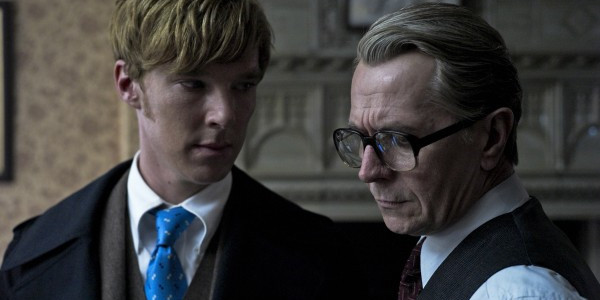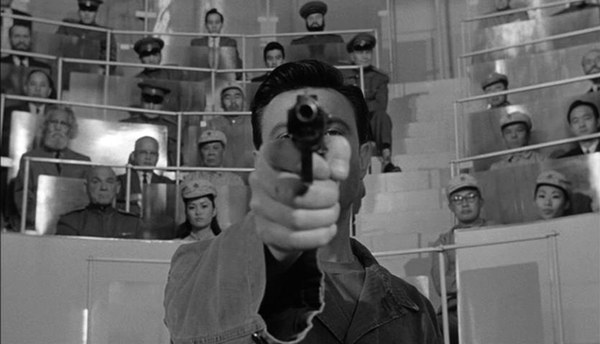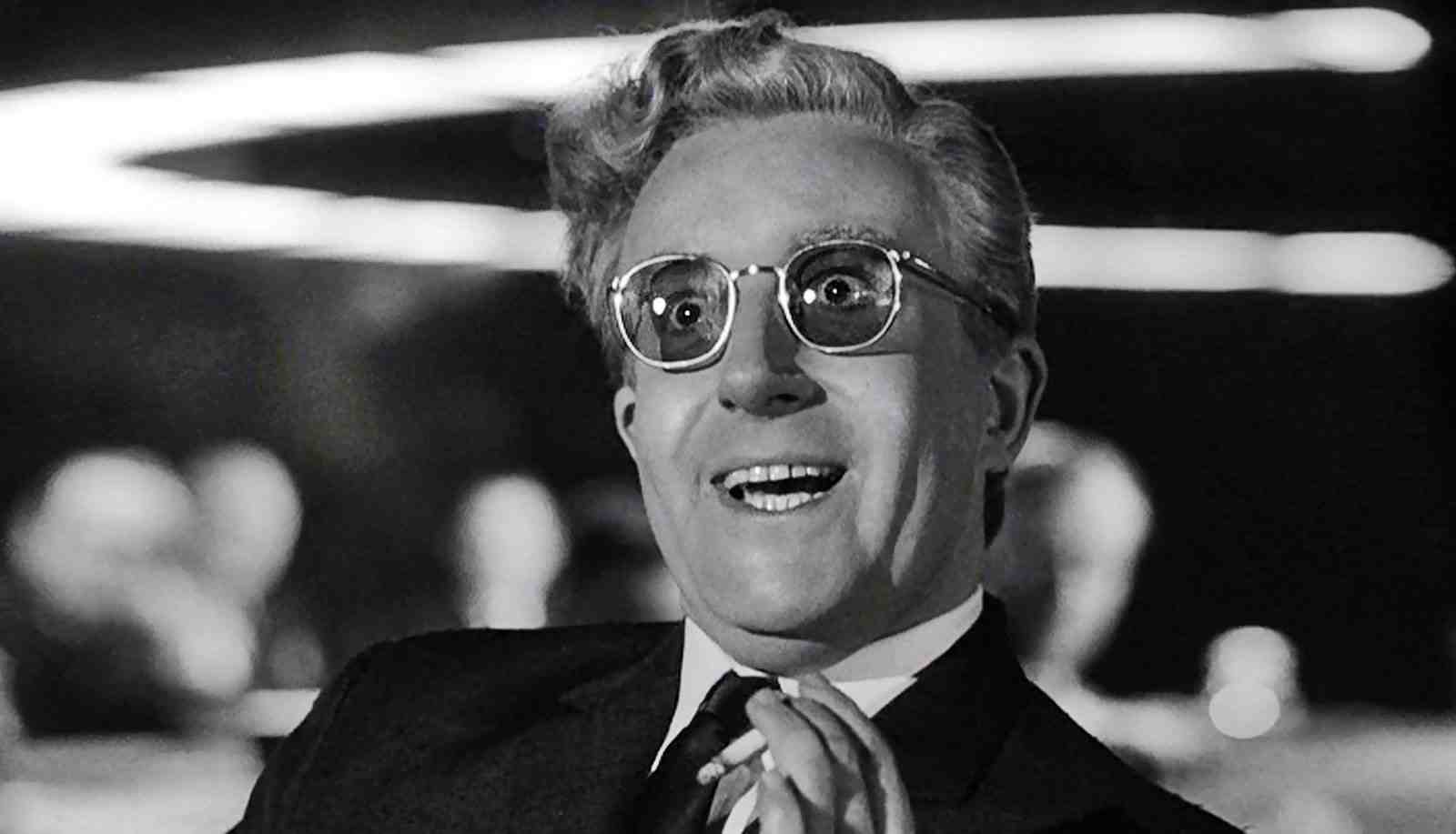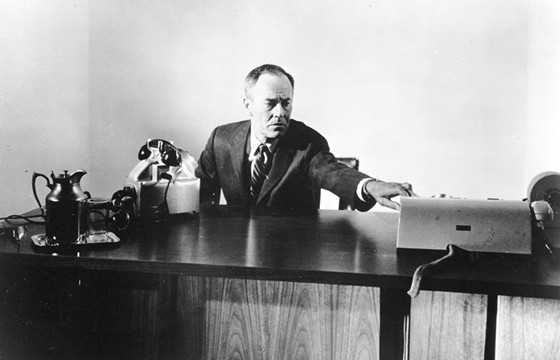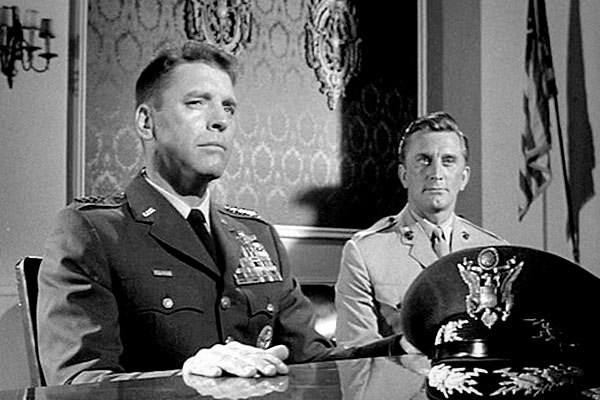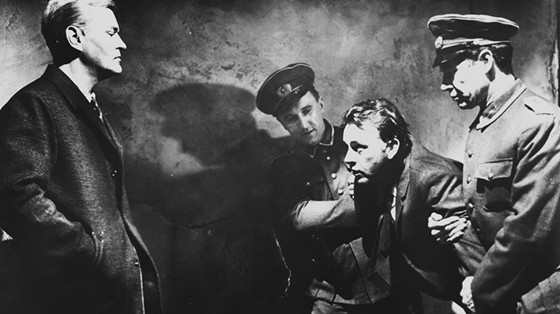The cold war might be over long ago but that doesn’t mean that you can’t enjoy a good ol’ cold war movie any more. The period has inspired and given birth to plenty of first-rate films, mainly thrillers and espionage infused conspiracy flicks. It appears that the most fruitful periods for these types of movies were at the height of the cold war itself in the first half of the sixties and after the fall of the Berlin Wall and the end of cold war, circa 1990.
The fact that five films from each of these periods appear on this list however is pure coincidence. I just thought of films dealing with the subject that I enjoyed the most and coincidently five of each came up. I also purposely decided not to include films that deal with cold war paranoia indirectly, like The Invasion of the Body Snatchers, and to stick with movies that deal with the topic pretty much head-on instead. I also steered away from television productions, which explains the the omission of films like The Day After and The War Game. That being said, I hope you enjoy these ten great red scare titles.
1. The Manchurian Candidate (John Frankenheimer 1962)
Based on the same name novel by Richard Condon and not to be mistaken with the 2004 remake by Jonathan Demme, John Frankenheimer’s The Manchurian Candidate is a fantastic political thriller, which was way ahead of its time and still manages to hold up extremely well to this very day.
Upon their return from the Korean war, after having been taken prisoner by the Soviets, Staff Sergeant Raymond Shaw (Laurence Harvey) is awarded the Medal of Honour upon recommendation of fellow POW Captain Bennett Marco (Frank Sinatra). And whilst Shaw’s mother Eleanor Iselin (Angela Lansbury), a communist spy, is trying to get Shaw’s stepfather John Iselin (James Gregory), a McCarthy-like anti-communist, to win the nomination for the vice-presidency, Captain Marco is constantly having nightmares in which he sees a hypnotised Shaw kill fellow soldiers under command of Russian and Chinese military staff.
And when Marco starts to investigate what might be behind these odd reoccurring dreams, he discovers that the heroic act which Shaw was awarded for never actually took place and that he, Shaw and all their fellow soldiers were brainwashed whilst they were prisoners of war. And as those facts come to the surface, the complex communist conspiracy which is taking place all around him also starts to come unravelled.
Amazingly, The Manchurian Candidate was actually released during the thirteen days of the Cuban Missile Crisis and clearly struck a chord with audiences at the time. But even if this hadn’t been the case, chances are that it would have been a hit anyway, seeing that it’s simply one hell of a conspiracy movie, a genre that was gaining popularity at the time.
Confidently directed by John Frankenheimer and with a first-rate script which manages to serve satire and thriller elements in equal measure, the film also benefits from excellent performances from the entire cast, which also features Janet Leigh as Sinatra’s love interest. The film was nominated for two Academy Awards, one for Best Supporting Actress and one for Best Editing, and even though Angela Lansbury did not win her Oscar, she did go on to take home the Golden Globe in the same category.
2. Dr. Stangelove or: How I Learned to Stop Worrying and Love the Bomb (Stanley Kubrick 1964)
One of the greatest black comedies to ever grace the screen, Dr. Strangelove is Stanley Kubrick’s only satire and the greatest parody of the era’s cold war paranoia. The film was inspired by the 1958 book Red Alert by Peter George.
Unhinged United States Air Force General Jack D. Ripper (Sterling Hayden) orders a nuclear strike on the Soviet Union by all the patrolling bombers under his command as he believes that the Russians are sapping the Americans’ bodily fluids. He orders Captain Lionel Mandrake (Peter Sellers) to put their base on alert but Mandrake notices that there doesn’t seem to be a war going on at all and soon finds out that Ripper is simply bat-shit crazy.
Soon after the President (Peter Sellers in a second role) meets with his advisers, the Joint Chiefs of Staff, which include gung-ho General Buck Turgidson (George C. Scott) who actually sees this as a great opportunity to teach the commies a lesson, and his scientific advisor Dr. Strangelove (Peter Sellers in his third role in the movie) in the war room as they try to avoid a worldwide nuclear disaster. Meanwhile a lone bomber piloted by Major T.J. “King” Kong (Slim Pickens), whose radio has been knocked out and therefore cannot be called back, is on a steady course to deliver its nuclear payload.
There’s really nothing that isn’t brilliant about this film. A fantastic screenplay, superb direction, great set and production design, ironic use of music and a stunning cast in which every performance is a stand-out, Dr. Strangelove combines all its elements into one stunning whole. The best political satire ever made and just as effective and funny now as when it was first released fifty years ago.
3. Fail-Safe (Sidney Lumet 1964)
Based on the novel of the same name by Eugene Burdick and Harvey Wheeler, Fail-Safe is an excellent cold-war thriller directed by Sidney Lumet.
When an electrical malfunction causes a transmission to be sent to a squadron of bombers to attack Russia with nuclear arms, General Bogan tries to call the bombers back but as they have already passed their “fail-safe” point, the pilots have been instructed to ignore any reversal of prior orders. It’s then up to the President (Henry Fonda) to try to avoid nuclear disaster by working directly with the Russians through his interpreter (Larry Hagman). All bombers are destroyed except for one lone plane which manages to continue its course and it becomes apparent that the President might have to do the unthinkable to divert an all-out World War III.
Featuring a plot that is so similar to Dr. Strangelove that a plagiarism lawsuit was filed and settled out of court, Fail-Safe is indeed the straight-faced counterpart of Kubrick’s satire which was released earlier the same year. Set mainly in the one location of Strategic Air Command Headquarters, the movie nonetheless manages to be a real nail-biter and is constant edge-of-your-seat stuff. Tightly directed Sidney Lumet and featuring a great cast which also includes Walter Matthau, Dan O’Herlihy, Fritz Weaver, Edward Binns, Frank Overton and Dom DeLuise, Fail-Safe is a classic cold-war thriller. Despite critical acclaim the film did not do well at the time of its release due to the similarities with Dr Strangelove, which had hit the theatres earlier, but the film has since rightfully found its audience.
4. Seven Days in May (John Frankenheimer 1964)
It’s quite telling that in a list of ten Cold War classics, there are two entries by director John Frankenheimer. Master of the paranoia thriller and completely on fire in the early sixties, Frankenheimer followed up his cold war classic The Manchurian Candidate with another fantastic entry into the genre with Seven Days in May.
The film follows right-wing General James M. Scott (Burt Lancaster) who believes that liberal President Jordan Lyman (Fredric March) is being way too soft on the communists when he decides to sign a nuclear disarmament agreement with Soviets. As a result he plans a military takeover of the United States.
Colonel “Jiggs” Casey (Kirk Douglas) discovers the conspiracy and even though he does not support the President’s decision to sign the agreement, he is even more opposed to this undemocratic plot and informs the President of the general’s plans. From there on in Casey, the President and some of his trustworthy aids have seven days to find evidence and foil the plot, constantly being hindered by political protocol and those involved in the conspiracy.
With a realistic screenplay and stark black and white photography, Seven Days in May has a distinct docudrama feel to it. And whilst The Manchurian Candidate was released during the Cuban Missile Crisis, Seven Days in May was released a few months after the assassination of President Kennedy, once again making the film feel rather topical at the time.
Just like Frankenheimer’s previous cold war thriller, this film also received two Academy Award nominations, for Best Supporting Actor and Best Art Direction. And whilst the film again did not win the coveted statues, Edmond O’Brien walked away with a Golden Globe for Best Supporting Actor instead, just like Angela Lansbury had done two years before for The Manchurian Candidate.
5. The Spy Who Came In From the Cold (Martin Ritt 1965)
Based on the novel of the same name by renowned author of espionage thrillers John le Carré, The Spy Who Came In From the Cold is a classic cold war spy thriller, which didn’t do all that well upon its initial release due to its bleak and grim nature but has tremendously gained in stature over the years.
Alec Leamas (Richard Burton) is a British agent in West Berlin who is demoted after one of his operatives is killed. As a result his finances dwindle, he goes into a depression and turns to alcohol. This however is part of a scheme to make Leamas able to go undercover in the East. Soon Leamas is on the communist payroll and divulging British intelligence. He also gets interrogated about an East German intelligence officer named Mundt by Herr Fiedler (Oskar Werner), which ultimately leads to Mundt’s arrest.
But during Mundt’s trial, information about Leamas surfaces and it appears that he in fact might be a double-agent who’s still working for the West. This in turn results in Mundt’s acquittal and the arrest of Leamas and Herr Fiedel, who is presumed to be in cahoots with him. But it turns out that truly nothing appears as it seems in the world of espionage and further double-crosses are ahead.
Featuring a grim intricate plot about a burned-out depressed main character in a shady world, bleak black and white cinematography and art direction and a down-beat finale, the film wasn’t a success with audiences at the time even though it received plenty of critical praise. The movie won BAFTAs for Best British Film, Actor, Cinematography and Art Direction as well as Academy Award nominations for Richard Burton and its Art Direction. The Spy Who Came In From the Cold is nowadays considered one of the very best John le Carré adaptations and a classic espionage thriller.
